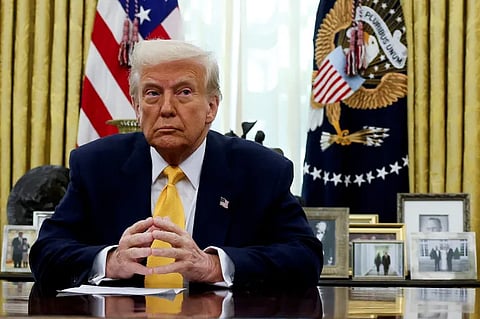Donald Trump: European nations have demanded the return of gold from the US, which is increasing tensions with Trump
As the Iran-Israel conflict reaches a ceasefire, a new geopolitical concern is emerging—this time involving former U.S. President Donald Trump and several European nations. With signs pointing to Trump possibly returning to power in the upcoming U.S. elections, countries like France, Germany, and Italy have raised fresh concerns about the safety of their gold reserves stored in the United States.
According to international sources, these countries have millions of tons of gold held in U.S. treasury vaults, which were originally kept there as part of historical financial arrangements and security considerations. However, with growing political uncertainty and what they perceive as increasing authoritarian tendencies from Trump, European nations are now demanding the repatriation or audit of their gold reserves.
🇺🇸 Trump's Shadow Looms Large
There are growing concerns in Europe that Donald Trump is allegedly trying to assert influence over U.S. institutions without holding office. Speculation that he may attempt to exert control over the Federal Reserve (Fed) has sparked unease among European leaders, who worry that such moves could put their foreign gold deposits at risk.
An official from the European Taxpayers Association (TAE) has confirmed that the group has initiated a formal request for gold repatriation. Even if physical return isn't immediately feasible, they have urged U.S. authorities to at least allow a full audit of European-owned reserves held on American soil.
A Climate of Distrust
This shift in sentiment comes amid:
Rising global instability
Concerns over U.S. political direction
Warnings from financial analysts about institutional risk under a Trump-led administration
The fear, analysts say, is not just about the return of Trump, but the uncertainty around policy shifts and financial security under his possible leadership. While Americans remain divided on Trump's political comeback, the diplomatic tension it is generating abroad—especially in Europe—is becoming increasingly evident.

